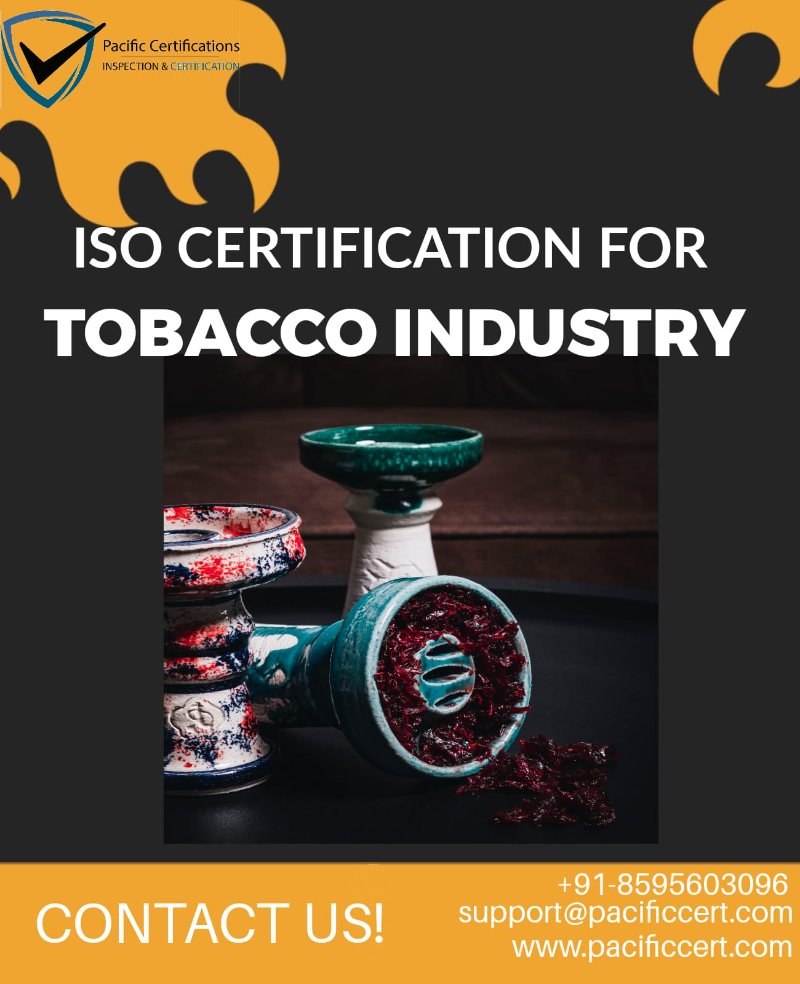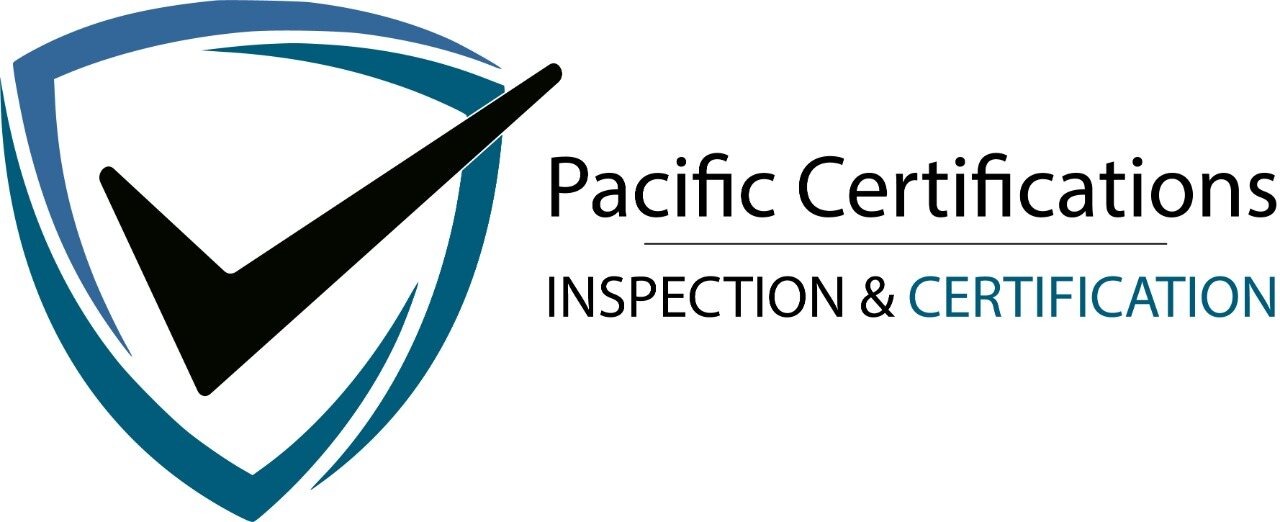ISO Certifications for Tobacco Industry Requirements and Benefits

Introduction
The tobacco industry operates within one of the most highly regulated and closely scrutinized manufacturing environments in the world. Tobacco growers, processors, cigarette and smokeless tobacco manufacturers, packaging units, and distribution facilities must operate under strict legal, health, safety, environmental, and traceability requirements imposed by governments, public health authorities, and international trade regulations. In addition to regulatory pressure, tobacco businesses face increasing expectations from supply-chain partners, logistics providers, and retailers to demonstrate disciplined operational control and responsible manufacturing practices.
Tobacco production involves complex processes such as leaf procurement and grading, curing, blending, flavoring, cutting, rolling, packaging, storage, and distribution. Weak controls in quality, worker safety, environmental management, or documentation can lead to product recalls, regulatory penalties, license suspensions, export restrictions, and reputational damage.
ISO certifications provide internationally recognized management system frameworks that help tobacco industry organizations standardize operations, manage risks, demonstrate compliance readiness, and maintain credibility in domestic and international markets.
In the tobacco industry, trust is built on controlled processes, regulatory discipline, and documented accountability.
Quick Summary
ISO certifications provide tobacco industry organizations with globally accepted frameworks to control manufacturing quality through ISO 9001, manage occupational health and safety risks in farms, factories, and warehouses through ISO 45001, control environmental impacts such as waste, emissions, and resource use through ISO 14001, improve energy efficiency in processing and manufacturing facilities through ISO 50001, ensure continuity of regulated production and distribution operations through ISO 22301, protect sensitive product formulations, supplier data, and commercial information through ISO/IEC 27001, and establish structured risk governance across regulatory, operational, and reputational exposures through ISO 31000. These standards support compliant tobacco manufacturing, supply-chain stability, and long-term business resilience.
For guidance on selecting the most relevant ISO standards for your tobacco operations, contact [email protected].
Applicable ISO standards for Tobacco Industry
The tobacco industry can benefit from implementing various ISO standards to ensure quality and safety in their processes and products. Here are some applicable ISO standards for the tobacco industry:
ISO 9001: Quality Management System (QMS)
ISO 9001 provides the foundation for quality control across the tobacco value chain, covering leaf procurement, grading, curing, blending, processing, rolling, packaging, labeling, storage, and distribution. It supports consistency in product characteristics, control of specifications, traceability of materials, management of nonconforming products, and documented compliance with internal and customer-defined quality requirements.
ISO 45001: Occupational Health and Safety Management System
Tobacco cultivation and manufacturing expose workers to risks such as chemical handling, dust inhalation, machinery hazards, repetitive tasks, noise, and ergonomic strain. ISO 45001 establishes a structured approach to identifying hazards, assessing risks, implementing controls, training workers, and monitoring incidents to reduce workplace injuries and occupational illnesses.
ISO 14001: Environmental Management System (EMS)
Tobacco processing and manufacturing generate environmental impacts including agricultural waste, chemical residues, wastewater, air emissions, packaging waste, and high water consumption. ISO 14001 helps organizations manage environmental aspects, comply with environmental laws, control pollution, and improve sustainability performance across agricultural and industrial operations.
ISO 50001: Energy Management Systems
Tobacco curing, drying, processing, and manufacturing are energy-intensive activities. ISO 50001 supports systematic monitoring of energy use, identification of efficiency opportunities, reduction of fuel and electricity consumption, and lowering of operational costs and environmental impact.
ISO 22301:2019 – Business Continuity Management Systems
The tobacco industry operates under licensing regimes and tightly controlled supply chains. Disruptions such as equipment failure, regulatory shutdowns, raw material shortages, labor disruptions, or logistics interruptions can halt production and distribution. ISO 22301 ensures preparedness through business impact analysis, continuity planning, and recovery strategies to maintain critical operations.
ISO 27001: Information Security Management Systems (ISMS)
Tobacco businesses handle sensitive information including product formulations, supplier contracts, pricing data, export documentation, and regulatory records. ISO/IEC 27001 provides a structured framework to protect information assets from unauthorized access, data breaches, and cyber threats.
ISO 31000:2018 - Risk Management
ISO 31000 supports structured identification and management of risks related to regulatory non-compliance, product quality issues, occupational health exposure, environmental violations, supply-chain disruption, and reputational impact across the tobacco business lifecycle.
ISO 26000: Social Responsibility
ISO 26000 provides guidance on social responsibility, helping organizations address the social, ethical, and societal implications of their activities, including the potential health and societal impacts of tobacco products.
Click here to find out more applicable standards to your industry
What are the Requirements of ISO Certifications for Tobacco Industry?
Tobacco industry organizations seeking ISO certification must establish documented management systems and demonstrate consistent implementation across farming, processing, manufacturing, packaging, storage, and distribution operations. Below are the key requirements:
ISO 9001:2015 – Quality Management
Document processing, manufacturing, packaging, and distribution processes
Define quality objectives aligned with regulatory and customer requirements
Control raw material traceability and batch records
Manage nonconforming products and corrective actions
Control labeling, packaging, and specification changes
Conduct internal audits and management reviews
ISO 45001:2018 – Occupational Health & Safety
Identify hazards related to agricultural and manufacturing activities
Assess OH&S risks and implement engineering and procedural controls
Provide training, PPE, safe work procedures, and emergency response
Monitor incidents, near-misses, and health performance
ISO 14001:2015 – Environmental Management
Identify environmental aspects such as waste, emissions, and water use
Control hazardous chemicals and agricultural residues
Ensure compliance with environmental permits and regulations
Monitor environmental objectives and improvement programs
ISO 50001:2018 – Energy Management
Identify energy-intensive curing, drying, and processing operations
Monitor energy consumption and performance indicators
Implement efficiency improvements and fuel optimization
Review and improve energy performance
ISO 22301:2019 – Business Continuity
Identify critical licensed production and distribution activities
Conduct business impact analysis (BIA)
Develop continuity and recovery plans
Test and review continuity arrangements
Tip:Map the full tobacco product lifecycle—from leaf procurement and curing through processing, packaging, warehousing, and distribution—against ISO requirements to identify compliance and control gaps early.
For assistance in evaluating your tobacco operations against ISO requirements, contact [email protected].
What are the Benefits of ISO Certifications for Tobacco Industry?
ISO certifications provide tobacco industry organizations with strong operational and commercial benefits, including:
Improved consistency in processing and product quality
Reduced regulatory non-compliance and inspection findings
Safer working conditions across farms and factories
Stronger environmental control and sustainability performance
Better traceability and batch control
Improved energy efficiency and cost management
Enhanced credibility with regulators, distributors, and partners
Improved audit readiness and documentation discipline
Support for export licensing and international trade
Long-term operational resilience and business continuity
The global tobacco industry continues to operate under tightening regulations, increased taxation, stricter labeling requirements, and heightened public scrutiny. At the same time, international trade in tobacco products remains significant, with continued demand in regulated markets and emerging economies. Manufacturers are increasingly required to demonstrate disciplined governance, traceability, environmental responsibility, and worker safety as part of licensing and supply-chain expectations. Tobacco businesses with ISO-aligned management systems are better positioned to manage regulatory complexity, maintain operational stability, and sustain market access.
How Pacific Certifications Can Help
Pacific Certifications, accredited by ABIS, operates as an independent certification body for tobacco industry organizations by conducting impartial audits against applicable ISO standards. Our role is to objectively assess whether documented management systems and operational practices conform to international ISO requirements, based strictly on verifiable evidence and records.
We support tobacco industry organizations through:
Independent certification audits conducted in accordance with ISO/IEC 17021
Objective assessment of quality, safety, environmental, energy, and information security controls
Clear audit reporting reflecting conformity status and certification decisions
Internationally recognized ISO certification upon successful compliance
Surveillance and recertification audits to maintain certification validity
For ISO certification for tobacco industry organizations, contact [email protected] or call +91-8595603096.
For ISO certification inquiries for the tobacco industry, contact [email protected] or +91-8595603096.
Author: Ashish

Read more: ISO Certification for Textile Industry-Related standards-Requirements-Benefits
